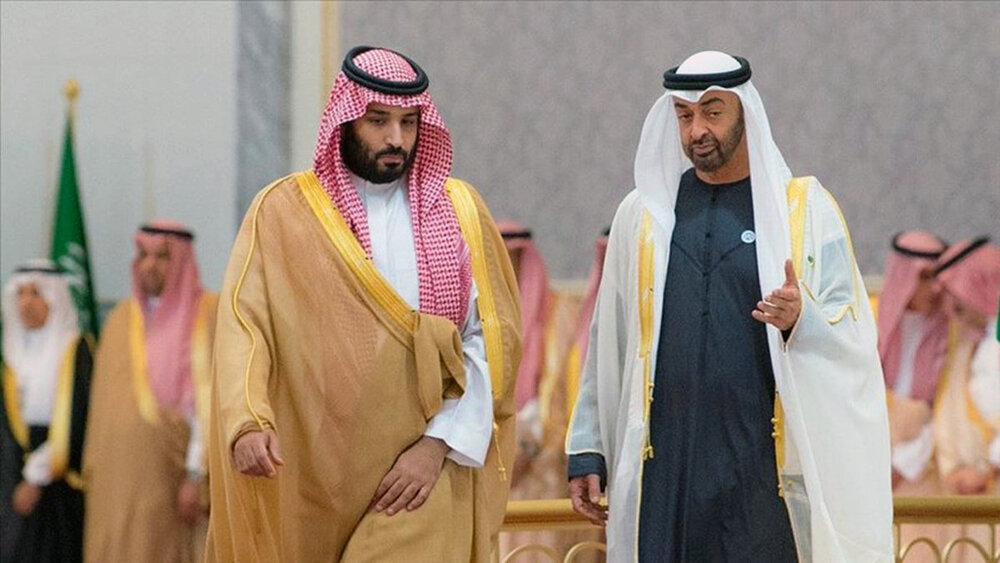Rising anxiety

TEHRAN – U.S. president Joe Biden touched a raw nerve when he and his national security officials made announcements signaling a reconsideration of former President Donald Trump’s policies toward the region.
Saudi Arabia and its regional allies are clearly nervous about this reconsideration.
The Biden administration started by suspending arms sales to Saudi Arabia and notifying Congress of its decision to remove Yemen’s Ansarullah movement from the U.S. government’s list of foreign terrorist organizations. The Trump administration designated the movement in its final days, a move that sparked a global outcry from humanitarian organizations.
“We have formally notified Congress of the Secretary’s intent to revoke these designations,” The Washington Post cited a State Department official as saying in a statement on Saturday.
The Biden administration had announced in its early days that it will review a range of Trump-era policies on Yemen, Afghanistan, North Korea, Russia, and beyond. The administration’s review of other issues is yet to result in a concrete decision with Yemen being an exception.
Although the Biden administration sought to soothe Saudis’ concerns about the possible fallout of its decision, Saudi Arabia and its allies received the news of the delisting with clear resentment, swallowing their disappointment with the new U.S. administration.
The delisting of Ansarullah comes on the heels of another U.S. decision on Yemen, which is the end of U.S. support for Saudi military operations in Yemen.
“This war has to end. And to underscore our commitment, we’re ending all American support for offensive operations in the war in Yemen, including relevant arm sales,” President Biden said in a recent speech at the State Department while underling the U.S. commitment to ensuring Saudi Arabia’s security and territorial integrity.
The Saudis welcomed Biden’s comments, particularly his commitment to the country’s defense and addressing threats against it.
“The Kingdom of Saudi Arabia welcomes the United States’ commitment, expressed in President Biden’s speech today, to cooperate with the Kingdom in defending its security and territory,” Saudi Arabia’s Foreign Minister Faisal bin Farhan said in a tweet on Thursday.
Apart from these formal statements, Saudi Arabia and its allies in the region, especially the United Arab Emirates, feel nervous about the future given the regional state of play. The Biden administration has already suspended the sale of advanced F-35 fighter jets to the UAE all while signaling a different approach to dealing with the region’s issues especially the situation around the 2015 Iran nuclear deal, officially known as the Joint Comprehensive Plan of Action (JCPOA).
Biden’s new approach caused concerns in Riyadh and Abu Dhabi.
“The UAE believes that U.S. credibility in the region is at stake and that withholding U.S. support from offensive operations in Yemen will only increase wariness that Washington’s policy reviews could go further than regional security requirements would warrant,” Al Arab, a London-based newspaper close to the UAE, wrote a few days after UAE Foreign Minister Sheikh Abdullah bin Zayed al-Nahyan spoke by phone with his U.S. counterpart Antony Blinken.
On Thursday, Blinken and al-Nahyan discussed a range of bilateral and regional issues, according to a statement published by the UAE Foreign Ministry.
“During the phone call, the parties reviewed strategic relations between the UAE and the U.S. as well as several issues of common concern, including the peace accord between the UAE and Israel and its role in achieving security and stability in the region,” the statement said.
Iran was not mentioned in the statement but Al Arab claimed that the Emirati Foreign Ministry’s mention of “strategic relations” between Washington and Abu Dhabi is seen as a hint from Abu Dhabi at the type of supposed threats Iran constitutes for countries of the region.
The Emiratis like the Saudis fear that the Biden administration moves ahead with its agenda in the region – whether in its relation with Iran or the Yemen war – without coordinating or cooperating with them. And this fear seems to have even caused disagreements between the crown princes of Abu Dhabi and Saudi Arabia.
There is a quiet disagreement between Mohammad bin Salman and Mohammad bin Zayed in terms of how to deal with the new U.S. administration’s policies toward the region, according to a report published by the Lebanese Al-Akhbar newspaper.
“There is a hidden disagreement between the Crown Prince of Saudi Arabia, Mohammed bin Salman, and his Emirati counterpart, Mohammed bin Zayed, who believes that complacency with the Biden administration will threaten the stability of the region, especially in light of what he says is Washington’s desire to demolish all that has been achieved from the mobilization against Iran while bin Salman wants to temporarily calm the situation and wait to see what will happen on the ground,” Al-Akhbar said.
The disagreement was reflected by the Al Arab report, which boasted that the UAE, unlike Saudi Arabia, can talk to the Biden administration without fearing media-related sensitivities.
“Sources said that the UAE has enough political and diplomatic weight to be able to talk with the new administration without the inhibitions of diplomatic and media-related sensitivities that could stem from a dialogue between the Biden administration and its Saudi allies. Even before Biden’s inauguration, the U.S.-Saudi relationship was the target of pressures related to the Jamal Khashoggi case and other cases linked to human rights in the kingdom,” Al-Arab wrote.
Saudi Arabia and the UAE as well as Bahrain are equally concerned about Biden breaking from the policies of the Trump administration, which had very close cooperation with them. They currently prefer to wait and see what will happen in the coming months and then voice their possible opposition to Biden’s approach.
